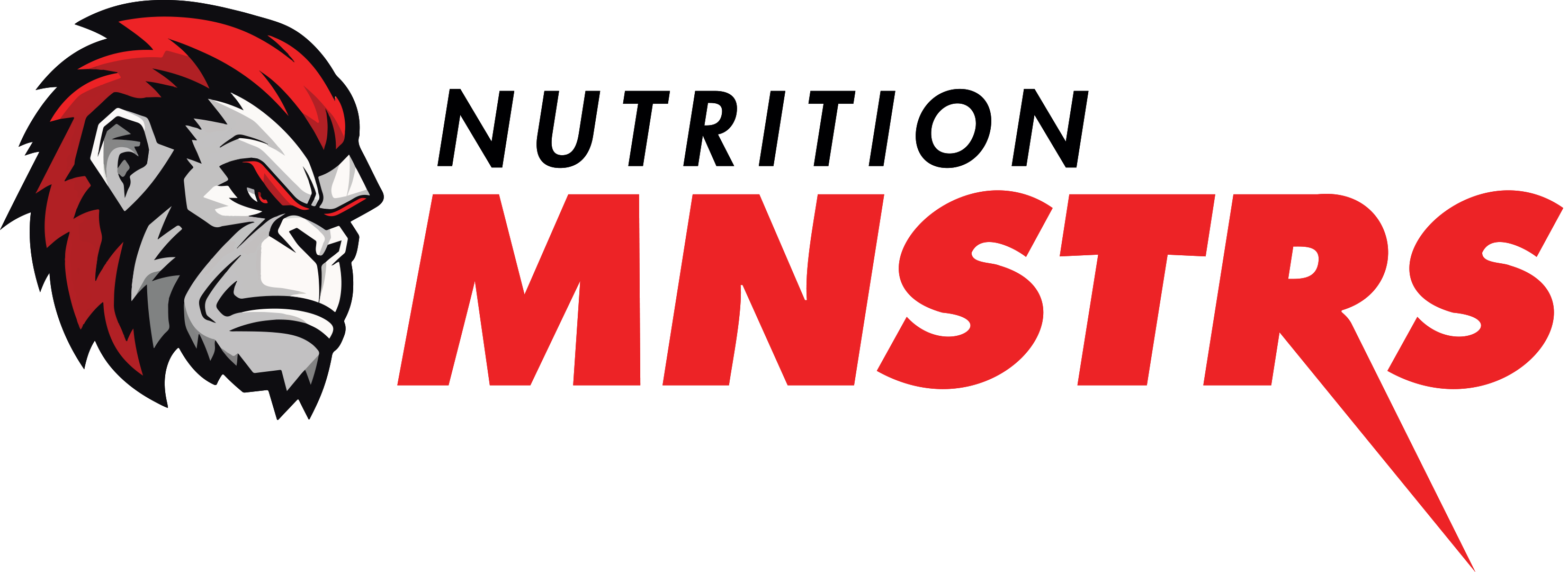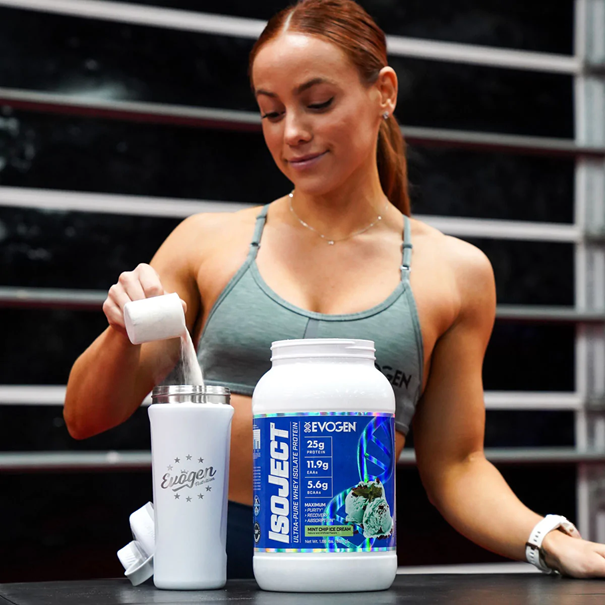The complete guide to whey protein
One of the most purchased supplements today is whey protein. Why? Because it is used to help recover from intense training sessions and supports the growth of lean muscle tissue.
Unfortunately, beyond these two important points, not many people understand the full benefits of whey protein, why it is a highly recommended supplement and the different types of whey protein available.
In this complete guide to whey protein, we will reveal everything about this incredible supplement so you can better understand why you should be using whey protein.
What is whey protein?
Whey protein is actually a byproduct of cheese production. When producing cheese, a liquid part called whey is formed and then a thicker part called curd. As shocking as it may seem, before whey protein was considered beneficial, cheesemakers threw it away. Today, however, it is one of the best-selling supplements on the market.
The whey liquid is removed from cheese production and pasteurized and dried into powder form. What you are left with is a finished product called whey protein powder which is used in products such as protein powders, protein RTDs and protein bars.
What types of whey protein are there?
“Whey protein” is often used loosely. There are a few different types of whey protein, all of which have different properties and quality. Whether they all work to meet your needs? Probably!
Below we describe three sources of whey protein that we should all know about. We also explain how they differ from each other.
Whey protein concentrate
The first of the whey protein sources is the most commonly used: whey protein concentrate (WPC). Whey protein concentrate is found in almost all blended protein powders and is a simple, yet inexpensive form of protein.
WPC is a fairly quickly digested and complete protein source, but it falls somewhere in the middle of this list in terms of how quickly it is digested and absorbed. Whey protein concentrate is generally digested within 30 minutes after consumption.
Although it doesn't contain the highest quality whey protein of the protein sources on this list, whey protein concentrate is a great product to use if you're new to strength training or are on a budget.
Because whey protein concentrate is not of the highest quality, some users may experience mild bloating and gas because their body cannot easily digest the lactose in this particular protein source.
If you want a blended protein supplement to meet your protein needs, check out Evogen Nutrition Evofusion. This product not only tastes great, but also provides you with a high-quality, sustainable protein matrix.
Whey protein isolate
If you were to look specifically at the digestibility of different protein sources, whey protein isolate (WPI) would be a step further than whey protein concentrate. WPI is not only a higher quality protein, but it also digests better and faster than WPC.
Users have found that the digestive problems commonly associated with whey protein concentrate are not present when using a whey protein isolate. This is usually due to the reduction of lactose in the protein source (people who are sensitive to lactose may find that they are better able to use whey protein isolate).
Whey protein isolate contains many amino acids while it is extremely low in carbohydrates, sugars and fat. The amino acid Leucine, which is extremely important for building lean muscle mass, is especially present in Whey protein isolate.
If you're looking for a high-quality whey protein isolate that tastes great, check out Evogen Nutrition IsoJect . This pure whey isolate is available in more than 7 delicious flavors.
Hydrolyzed whey protein
Of all the whey protein sources on the market, whey protein hydrolyzate (WPH) is the most expensive, but also the whey protein source of the highest quality. Whey protein hydrolyzate is the fastest-digesting protein on this list.
Whey protein hydrolyzate provides highly absorbable peptides, which can have a positive anabolic effect to help potentially improve muscle growth. WPH is highly concentrated and is easiest to break down and absorb by the body.
While it is somewhat unusual to find a pure whey protein hydrolyzate powder, more often than not you will find WPH as part of a blended protein powder that contains multiple protein sources.
What are the benefits of whey protein?
Whey protein offers several benefits. Below we would like to tell you about the versatility and possibilities of whey protein supplements.
-
BUILD MUSCLE
One of the main reasons to use a whey protein is to build muscle. Studies have shown that you can gain more muscle mass by taking protein supplements. Protein is the building block of muscle and therefore you can see improved muscle growth when you increase your protein intake by using whey protein, for example. 2 grams of whey protein per kg of body weight is optimal. -
PREVENT MUSCLE LOSS
A concern that many people have is muscle loss. It takes blood, sweat and tears to build quality muscle - the last thing you want is to lose your gains. You may experience a loss of muscle mass due to injury, lack of activity, or even due to a calorie deficit when trying to burn body fat. In general, it appears that using whey protein helps prevent muscle loss. -
IMPROVE RECOVERY
The ability to recover can mean the difference between achieving the results you want or not achieving your goal. Research has shown that amino acids that break down, such as whey protein, can help improve post-workout recovery. By speeding up the recovery process, you can not only experience more lean body mass, but you can also get back in the gym and continue training harder because your muscles are fully recovered. -
INCREASE STRENGTH
In addition to helping build muscle, taking protein supplements has been shown to increase muscle strength. The ability to build muscle and strength is never a bad thing and should be something everyone strives for, especially as we get older. -
CARE OF HEALTH
Good health is vital for everyone. There are several factors to keep an eye on and consider when it comes to maintaining health and how protein plays a role. Increasing your protein intake can lower your risk of osteoporosis and maintain bone health as you age. Additionally, one study found that a high-protein diet can lower blood pressure, as well as triglycerides and LDL cholesterol. -
INCREASE IMMUNITY
Your immune system is what helps you stay free from illness and disease. To increase your resistance, it has been found that whey protein can increase glutathione levels. Glutathione is your body's most powerful antioxidant that scavenges and destroys free radicals and helps prevent oxidation that can cause cells to be destroyed or mutate - ultimately causing disease and illness to creep in. -
IMPROVE FAT BURNING
When it comes to weight loss and burning body fat effectively, whey protein can play a crucial role. An advantage of using whey protein is that it can boost satiety and keep you feeling full all day long. This can prevent you from overeating or snacking and it reduces your appetite. Then there is something called the thermic effect of food. This basically means how much energy is needed to break down and use the macronutrient. Protein has a much higher thermic effect than carbohydrates and fat. Therefore, consuming whey protein can help increase metabolism and allow you to burn more calories every day.

How much protein do you need per day?
If you exercise regularly, your needs are slightly different from those of sedentary people. Since you are reading this article, we assume that you are physically active and do some type of strength training.
To recover properly and help your body rebuild and repair broken down muscle fibers from resistance training, you should be somewhere between the recommended intake of 1.4-2.0 g of protein per kg of body weight. For example, if you weigh 100kg, you'll want to consume somewhere between 140 and 200g of protein per day.
When is the best time to use whey protein supplements?
First of all, a whey protein supplement should never be used to replace actual meals. However, if you find yourself struggling to meet your daily protein requirements, a whey protein supplement can be incredibly helpful.
So, when is the best time to use whey protein supplements? It's simple - when to increase your protein intake.
You can take a whey protein supplement with breakfast, between meals for extra protein and to stay satisfied, as a pre-workout or post-workout, and even before bed if necessary.
The short answer is…Always.
It should be noted that many assume that you should consume protein immediately after your workout to kick-start the recovery process during your "anabolic window" of opportunity. Research has shown that such a window is much longer than the 45 minutes we have all come to believe over the years. As long as you consume protein within 24 hours of your workout, you can reap the recovery benefits.
Do you need a mass gainer or can you use whey?
In an attempt to achieve massive size, many are turning to mass gainers. When looking at mass gainers you need to be very specific about what you use. Unfortunately, many mass gainers are packed with sugar, carbohydrates and fat to increase total calories. This is actually counterproductive. Although you want to increase your calories to increase your weight, consuming sugars, high carbs and fat can cause you to gain body fat in the process. The goal should be to minimize fat gain while bulking so that you don't have to do endless hours of cardio to burn off the fat mass you gain.
Evogen Nutrition Super Huge is an ideal mass gainer to meet your needs, because it exists from high-quality ingredients instead of throwing a bunch of junk into the profile to send the calories sky-high.
However, many people prefer to make their own gainer by using whey protein and throwing it in a blender with things like frozen fruit (like blueberries, bananas, strawberries, and raspberries), oats, yogurt, natural peanut butter, ice cubes, and more to suit their needs and tastes. The nice thing about making your own mass gainer with whey protein is that you have more control over your macros and profile than with an off-the-shelf mass gainer supplement.
Will High Protein Intake Damage the Kidneys?
The media is great at taking a story and following their own theory, leaving out important details to fit a particular narrative. For some reason they have bodybuilders in their sights. But the truth is, unless you have a health condition or condition that prevents your body from breaking down protein easily (or you already have kidney damage), you're fine consuming a whey protein supplement.
Instead of pushing a story that has no scientific basis, we should all trust the real scientific studies that exist on the subject. The fact is that studies have been conducted that show that consuming whey protein has no effect on kidney function, liver function or blood lipids.
Another study states that there are "no clear kidney-related contraindications to high-protein diets in individuals with healthy kidney function."
Despite what you may hear on the news, consuming whey protein does not pose a threat to kidney health as long as you do not have a pre-existing health condition. That said, it's still a good idea to talk to your doctor or dietitian (regardless of whether you're healthy or have a certain health condition) before adding supplements to your diet.



